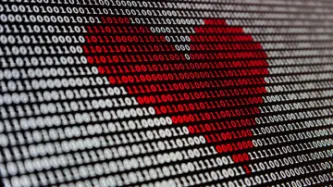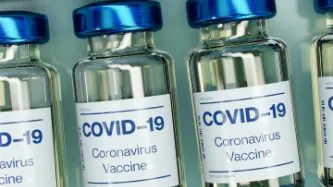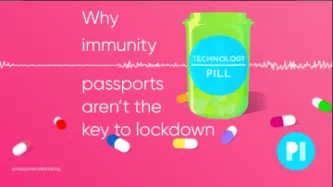Search
Content type: Advocacy
PI welcomes the opportunity to engage once again with the mandate by submitting comments, evidence, and recommendations to the UN Special Rapporteur on the right to health, Ms. Tlaleng Mofokeng. We hope that our input will contribute to the forthcoming report, “Digital innovation, technologies and the right to health”.
Technology has contributed significantly to the planning and delivery of health information, services and care. We have seen the use of data and technology across the healthcare…
Content type: Examples
Despite having opened their borders to and taking in millions of fleeing Venezuelan migrants, the Colombian government’s handling process for this population tells a story of discrimination rather than inclusion.
The 2021 issuance of the Temporary Statute for Venezuelan Migrants came with a legal framework laying out the benefits for incoming Venezuelans, but also outlined how a multibiometric system would be used for identification of this specific migrant group.
This system allows for…
Content type: Examples
In December 2019, a Brazilian public security programme, called the Integrated Border Operations Center (CIOF) was presented. The CIOF aims to combat transnational organised crime in the region of Foz do Iguaçu and the Triple Border Area1, shared by Argentina, Brazil, and Paraguy, and integrate different public security agents through a centralised system.
It has been reported that CIOF is part of a wider digital security apparatus being deployed in the Triple Border Area, that there is…
Content type: Examples
A vulnerability in the Bono Familiar Universal, the platform used to distribute the financial subsidy provided to households in precarious economic situation by the Peruvian government in response to the Covid-19 pandemic, enabled the subsidy to be accessed by malicious individuals.
The vulnerability was reported by Deep Security, and it was resolved but an undetermined number of malicious individuals were able to pose as beneficiaries to access the platform and collect the subsidy themselves…
Content type: Advocacy
We, the undersigned civil society organizations and individuals, urge the World Bank and other international organizations to take immediate steps to cease activities that promote harmful models of digital identification systems (digital ID).
The signatories of this letter are located in different countries, work with diverse communities, and bring a wide range of expertise. Among this group, there are many shared concerns and similar experiences documenting the harmful impacts…
Content type: Advocacy
Read in English
Nosotros, las organizaciones de la sociedad civil y los individuos abajo firmantes, instamos al Banco Mundial y a otras organizaciones internacionales a que tomen medidas inmediatas para cesar las actividades que promueven modelos perjudiciales de sistemas de identificación digital (ID digital).
Los firmantes de esta carta se encuentran en diferentes países, trabajan con diversas comunidades y aportan una amplia gama de conocimientos. Entre este grupo, hay muchas…
Content type: Long Read
As we see Covid-19 vaccination programmes beginning around the world, for the first time since the start of the pandemic there seems to be a light at the end of the tunnel as the fruition of truly unrivalled global scientific efforts has given us hope of saving lives, reopening our societies, and going back to “normal”.
This great moment of hope must not be seen opportunistically as yet another data grab. The deployment of vaccines, and in particular any “immunity passport” or certificate…
Content type: Report
Privacy International partnered with the International Human Rights Clinic at Harvard Law School to guide the reader through a simple presentation of the legal arguments explored by national courts around the world who have been tasked with national courts that discuss the negative implications of identity systems, particularly on human rights, and to present their judgement.
This argumentation guide seeks to fill that gap by providing a clear, centralised source of the arguments advanced in…
Content type: Report
Many countries in the world have existing ID cards - of varying types and prevalence - there has been a new wave in recent years of state “digital identity” initiatives.
The systems that states put in place to identify citizens and non-citizens bring with them a great deal of risks.
This is particularly the case when they involve biometrics - the physical characteristics of a person, like fingerprints, iris scans, and facial photographs.
Activists and civil society organisations around the…
Content type: Report
A common theme of all major pieces of national jurisprudence analyzing the rights implications of national identity system is an analysis of the systems’ impacts on the right to privacy.
The use of any data by the State including the implementation of an ID system must be done against this backdrop with respect for all fundamental human rights. The collection of data to be used in the system and the storage of data can each independently implicate privacy rights and involve overlapping and…
Content type: Report
Identity systems frequently rely on the collection and storage of biometric data during system registration, to be compared with biometric data collected at the point of a given transaction requiring identity system verification.
While courts have arguably overstated the effectiveness and necessity of biometric data for identity verification in the past, the frequency of biometric authentication failure is frequently overlooked. These failures have the potential to have profoundly…
Content type: Report
National identity systems naturally implicate data protection issues, given the high volume of data necessary for the systems’ functioning.
This wide range and high volume of data implicates raises the following issues:
consent as individuals should be aware and approve of their data’s collection, storage, and use if the system is to function lawfully. Despite this, identity systems often lack necessary safeguards requiring consent and the mandatory nature of systems ignores consent…
Content type: Report
While identity systems pose grave dangers to the right to privacy, based on the particularities of the design and implementation of the ID system, they can also impact upon other fundamental rights and freedoms upheld by other international human rights instruments including the International Covenant on Civil and Political Right and the International Covenant on Economic, Social and Cultural Rights such as the right to be free from unlawful discrimination, the right to liberty, the right to…
Content type: Report
Rather than providing a list of arguments, as is the case in the other sections of this guide, the fifth section provides a general overview describing the absence of consideration of these themes in existing jurisprudence and the reasons why these themes warrant future consideration including identity systems’ implications for the rule of law, the role of international human rights law, and considerations of gender identity.
Democracy, the Rule of Law and Access to Justice: This analysis of…
Content type: Explainer
In the name of reinforcing migration control and increasing security, the EU is introducing a host of new surveillance measures aimed at short-term visitors to the Schengen area. New tools and technologies being introduced as part of the visa application process and the incoming “travel authorisation” requirement include automated profiling systems, a ‘pre-crime’ watchlist, and the automated cross-checking of numerous national, European and international databases. There are significant risks…
Content type: Video
You can listen and subscribe to the podcast where ever you normally find your podcasts:
Spotify
Apple podcasts
Google podcasts
Castbox
Overcast
Pocket Casts
Peertube
Youtube
Stitcher
And more...
Content type: Long Read
Immunity Passports have become a much hyped tool to cope with this pandemic and the economic crisis. Essentially, with immunity passports those who are 'immune' to the virus would have some kind of certified document - whether physical or digital. This 'passport' would give them rights and privileges that other members of the community do not have.
This is yet another example of a crisis-response that depends on technology, as we saw with contact-tracing apps. And it is also yet another…
Content type: Explainer
Definition
An immunity passport (also known as a 'risk-free certificate' or 'immunity certificate') is a credential given to a person who is assumed to be immune from COVID-19 and so protected against re-infection. This 'passport' would give them rights and privileges that other members of the community do not have such as to work or travel.
For Covid-19 this requires a process through which people are reliably tested for immunity and there is a secure process of issuing a document or other…
Content type: Examples
Immunity passports are likely to increase discrimination and threaten fairness and public health - and won't work for practical reasons. First and foremost, scientists do not yet know whether infection confers immunity or for how long; the serological tests so far developed are insufficiently reliable; the volume of testing required is not feasible; and no country has enough survivors of COVID-19 to boost its economy. There are also numerous ethical objections.
Writer: Natalie Kofler and…
Content type: Examples
In Colombia, Peru, and Panama, quarantine regulations assign men and women different days to go out. For transgender people, these gender-based restrictions mean discrimination and violence for law enforcement and others, leading to numerous complaints. In Bogota, where law enforcement has been instructed not to demand ID to prove gender and trans people are allowed to choose their day, one trans woman was stabbed by a man who said she was out on the wrong day, and another was blocked from…
Content type: Examples
In one of its pandemic-related emergency orders, the Canadian province of Ontario has extended to police officers, First Nations constables, special constables, and municipal by-law enforcement officers the power to require those facing charges under the emergency laws to give their name, date of birth, and address or face fines of up to C$750 for non-compliance.
Source: https://toronto.ctvnews.ca/those-violating-ontario-s-emergency-orders-must-id-themselves-or-face-steep-fine-1.4877062…
Content type: Examples
NHS England is using Yoti's digital ID card solution to verify health care workers' identity; the cards are added to staff phones, enbaling them to use a contactless ID app to prove their identity both online and offline. Yoti is providing the system for free for three months to all public health organisations, emergency services, and community initiatives working to contain the pandemic.
Source: https://www.biometricupdate.com/202004/uk-national-health-service-rolls-out-yotis-biometric-…
Content type: Examples
In Haiti, the National Identification Office has been extremely crowded, despite the government requirement to avoid gatherings of more than 10 people. The cards, which include a photo, name, date of birth, and registry number, are required for bank transactions and other official purposes.
Source: https://www.voanews.com/science-health/coronavirus-outbreak/haitians-seeking-national-id-cards-say-government-violating-its
Writer: Sandra Lemaire and Matiado Vilme
Publication: VOA News
Content type: Examples
Ghana's opposition party, the National Democratic Congress, has blamed a spike in cases of COVID-19 on the National Identification Authority's refusal to suspend its registration efforts in the country's Eastern Region even though two citizens filed for a court injunction to halt the operation and even though the conditions violated the country's social distancing directives. Registrants were forced to share fingerprint scanners and wait in overcrowded conditions. Public pressure later forced…
Content type: Examples
An Accra High Court has ruled that the National Identification Authority can continue registering Ghanaians after two citizens filed a case arguing that continued registration violates the social distancing directive issued by president Akufo-Addo. However, a different division of the High Court granted a similar injunction filed by a group of 30 citizens, in force for ten days beginning on March 23.
Source: https://www.modernghana.com/news/992060/continue-with-your-ghana-card-registration-…
Content type: Examples
To help the UK's Department for Work and Pensions handle the more than half a million applications the department received in the last two weeks of March, the identity verification company Nomidio, a subsidiary of Post-Quantum, is offering its service free of charge. The service would enable a simple, server-based three-step verification process through a smartphone to help first-time users prove their identity.
Source: https://www.biometricupdate.com/202003/free-palm-and-face-biometrics-…
Content type: Examples
British biometric start-ups are helping the UK government create digital passports.
VST Enterprises is providing a biometrics-backed digital health care passport, V-COVID, to help critical NHS and emergency services workers get back to work; the passport will incorporate test results and be included in an app that can be scanned from two meters away. In combination, Patchwork Health, which provides NHS trusts with a digital platform and Truu, which provides a digital staff passport,…
Content type: Examples
Filipino president Rodrigo Duterte has exempted survey teams and National ID system registrars from lockdown rules on the basis that they are essential to providing cash distributions and other government responses intended to soften the impact of the community quarantine. Duterte argued that the acknowledged delays to the government's programme to assist low-income families derived from discrepancies in the lists of beneficiaries caused by relying on the 2015 census and that the implementation…
Content type: Examples
The Jamaican Government intends to fast-track creating and implementing a national ID system and give every Jamaican citizen a unique identifier in order to help it distribute aid and benefits needed in response to the COVID-19 pandemic. The government intends the system to be similar to others such as India's Aadhaar and incorporate biometric scans of either fingerprint or retina. It believes the system could also help formalise some professions such as taxi drivers and bartenders that are…













